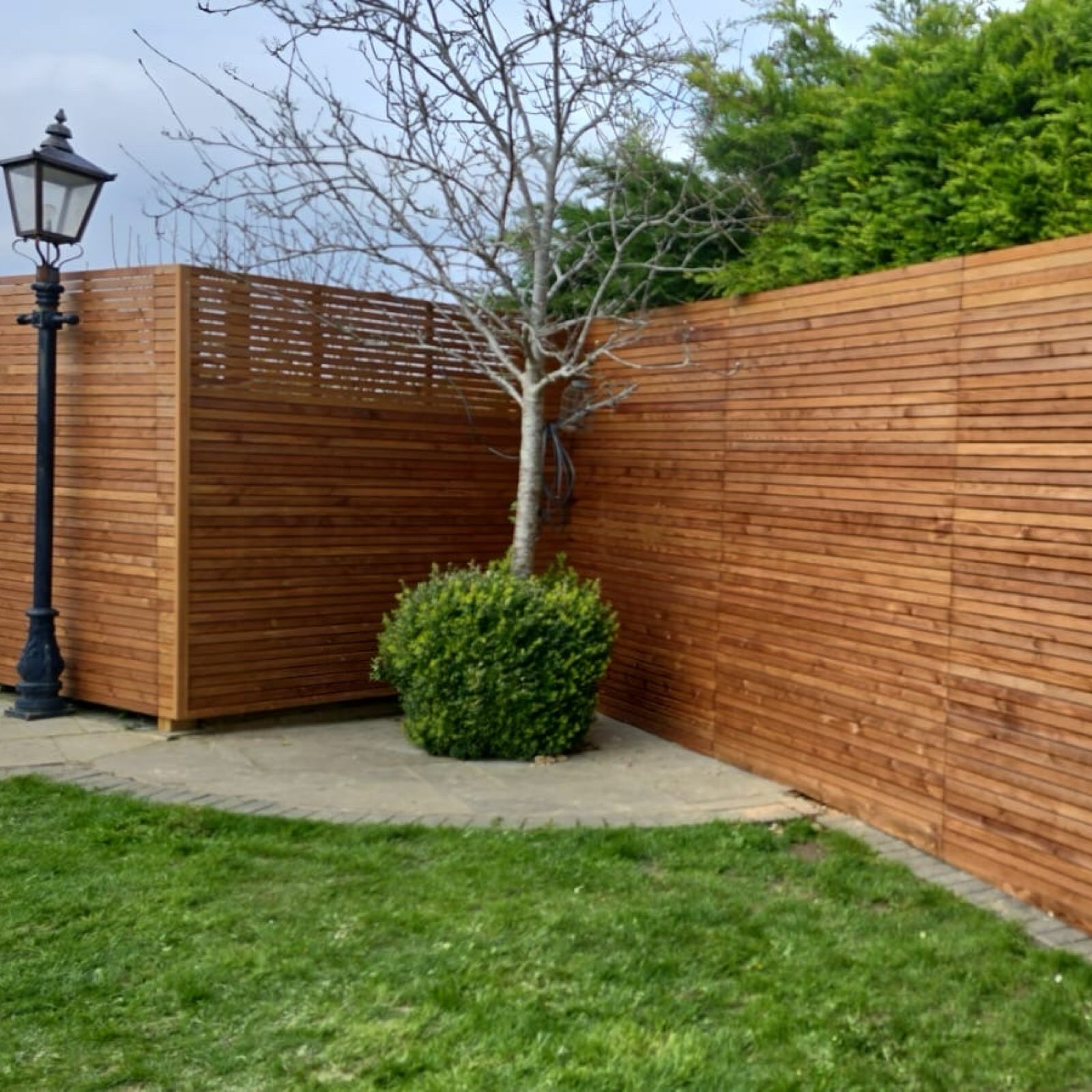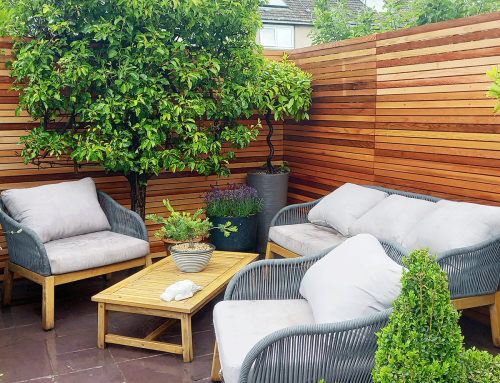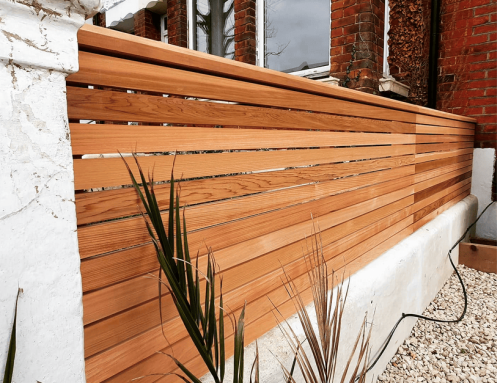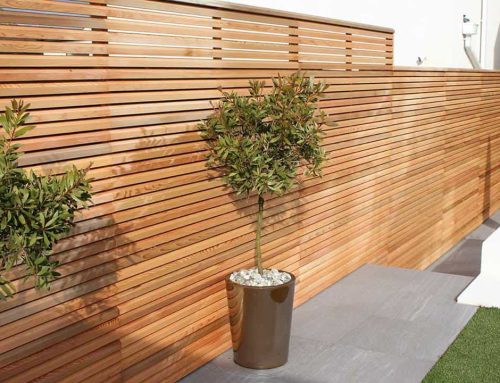This type of question online often leads to answers about your legal rights and the height of a fence permitted by planning laws in the UK. But that’s not always the answer people are looking for. Deciding on fencing heights should take into account your personal preferences and requirements. It’s a matter of looking at what suits you, your family and your property, then considering planning laws, neighbours and common sense.
To get it out of the way, the planning limit height is 2.0 metres for a rear garden fence and 1.0m for a front garden fence. But, people don’t always realise that this would only be considered if a neighbour complained and it’s not uncommon for people to have fencing much higher than this. If existing fencing is already higher then that should also be taken into account and is a sign that it may be ok.
With this in mind, this post looks at some of the considerations you might want to take into account when choosing the height of your garden fence.
1. Privacy
Of course, creating privacy to your garden is what we expect of garden fencing. But this doesn’t always mean you want it as high as you’re possibly allowed. It’s worth thinking about what view and perspective your neighbour has and what height is enough to achieve the level of privacy you desire.
Remember that next door may have an upstairs window that looks over your garden and so an excessively high fence may not be enough to ensure privacy. Consider adding a tree or planting to gain extra privacy thats more natural before getting too fixed on a tall fence.
2. Front garden fence height
Front garden fence heights have to be considered carefully. Many people have cars parked on driveways so having a fence that obscures a drivers view can be dangerous. Fence heights for front gardens are generally kept to 1.0m to allow clear sight lines for drivers and pedestrians.
There are often circumstances when an existing fence that is adjacent to a road is higher than 1.0m and in these cases as long as no one complains its ok. Changing the height of a front fence may need planning if you want to make your existing fence higher though.
3. Fence Design
Taller fence designs can incorporate an open top section that allows light through like a trellis or slatted fence panel. This makes the fencing less imposing and allows airflow and light to pass into the garden.
Its important to also note taller fences need stronger posts, this is due to wind loading. Again having an open top can help mitigate this and reduce potential problems in high winds.
Extending the height of your wall with a fence on top is also a great way of increasing height to your boundary. Top of wall fencing is often achieved with slatted fence panels or trellis. Strictly speaking the height of the wall and fence combined should not exceed 2.0m but if both neighbours are in agreement then its normally ok.
4. Rear Garden Fencing
The legal limit for fencing height in a rear garden is 2.0m, this should be measured from the lowest point. If you neighbours garden is lower than yours then the height is measure from their side. This can mean that you end up not having a high enough fence! So in this sort of situation you need to either negotiate with your neighbour and hope they are happy for you to extend your fence height. Or create some clever planting to add privacy. When agreeing fence heights with neighbours consider how extending the height might effect them. Suggesting an open trellis that allows light through might be more acceptable than a solid fence.
5. Also…Which Way to Face Your Fence?
At the same time you’re thinking about how tall the fence should be, you’ll want to start thinking about which way it will face. Towards you or away from you? In short, if you own the fence, it can face whichever way you choose. There’s a popular misconception that the nice side of the fence should always face outwards, but this simply isn’t true. This means you’re free to enjoy the side of the fence without posts without breaking any planning rules.















